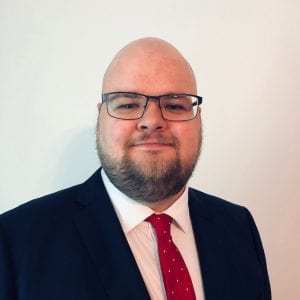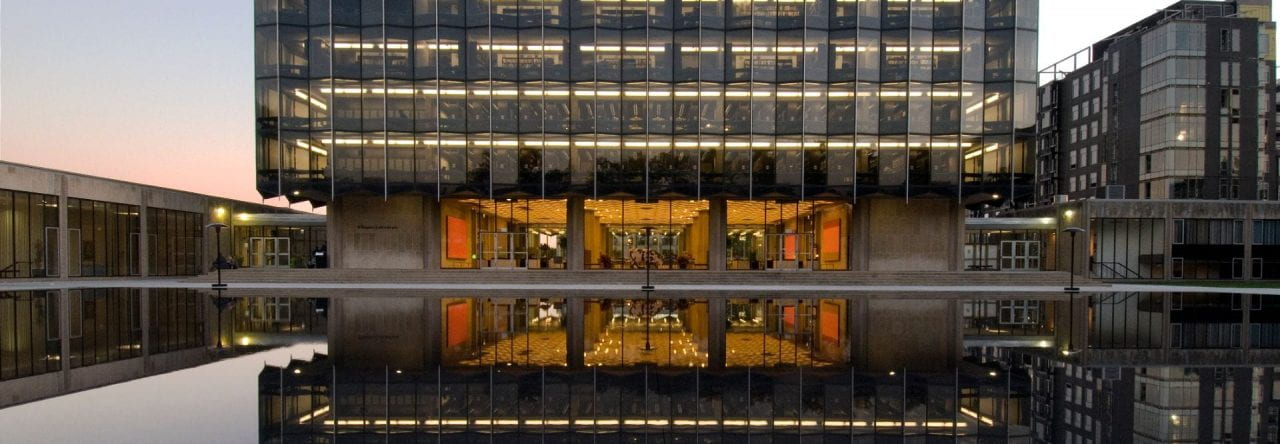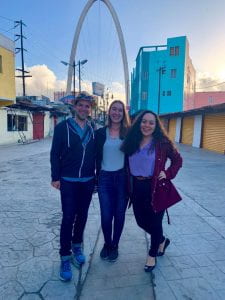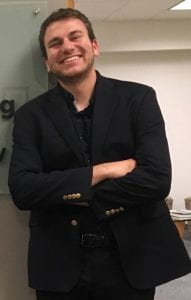By Caitlan M. Sussman, ’22
Rob Clark ’22 spent nearly 500 hours volunteering for the Center for Disability and Elder Law (CDEL) during the pandemic. I recently had the opportunity to sit down with Rob to learn more about his pro bono experience with CDEL.
with Rob to learn more about his pro bono experience with CDEL.
CDEL, founded in 1984, has two primary missions. It offers free legal services to low-income seniors and people living with disabilities in the greater Chicagoland area, and encourages pro bono participation in the community.
Rob began the internship during the last six weeks of summer 2020. He found the work so rewarding that he extended it through the Autumn and Winter Quarters of the 2020-2021 academic year.
Rob’s desire to gain “hands-on experience solving complex problems” first drew him to law school. Having done his undergraduate work in math and economics at SUNY Binghamton and his master’s degree in economics at the University of Pennsylvania, Rob founded and ran a private tutoring business in Philadelphia before deciding on the University of Chicago Law School. “I felt that law would give me a way to have a more immediate impact on the world,” he explained.
Coming into law school, Rob thought he might be interested in public interest work in the long term. Running the tutoring business, however, convinced him that he “wanted to also use the entrepreneurial skills [he] had developed while tutoring.” He decided on BigLaw as a way to combine entrepreneurial skills with legal practice.
The experience with CDEL was an “incredibly diverse internship.” During his six-month internship, Rob spoke with hundreds of clients and developed many ongoing client relationships. In some cases he was their main contact at CDEL and had his own private phone line where they could reach him directly. He was in charge of relaying legal advice from the organization’s attorneys to its clients.
During the internship, Rob drafted adult guardianship pleadings, assisting in matters in which adults were unable to handle their own personal or financial affairs, often due to living with a disability. He also helped with estate planning matters such as simple wills, transfer on death instruments to handle property, and power of attorney documents. In addition, he worked on matters relating to other issues that elderly individuals or persons living with disabilities might encounter, such as collections, banking, or private landlord-tenant issues.
“The clients are always so thankful and appreciative of the effort we put in,” Rob said. “It really means a lot to them.”
The internship helped Rob continue to develop fundamental legal skills, the basic “nuts and bolts of lawyering.” It allowed him to try his hand at the various stages involved in litigation. He drafted complaints, responses to motions to dismiss, and discovery responses. He also had the opportunity to work on transactional pro bono matters.
Rob particularly enjoyed working on property tax matters, helping seniors and people living with disabilities in Cook County obtain the property tax exemptions and recover the property taxes they deserve. Through CDEL, Rob was able to “help[ ] one client recover several thousands of dollars in overpaid taxes.”
Rob highly encourages students to get involved in public interest and pro bono work while in law school and throughout their career. As he explained, it is a unique opportunity to gain familiarity with client work and learn what it is like to be a lawyer prior to starting a legal career. The experience, he said, “developed my ability really to be a legal educator, which is part of our role as a lawyer – we need to explain to clients what is going on.” Speaking about his experience with both litigation and transactional drafting work at CDEL, Rob said: “That type of drafting experience I wouldn’t have gotten anywhere else.” It allowed him during his 2L summer to “go to my firm and draft entire motions and responses and get really good feedback because I wasn’t drafting something for the very first time.”
Pro bono work is also an important way to give back to the community, both in law school and in a professional capacity. No matter the practice area, Rob emphasized the importance of incorporating pro bono experience into legal practice. He considers it “an ethical obligation and my way to give back for all the opportunities that have been afforded me to get where I am now.”
In addition to his internship with CDEL, Rob has engaged in other pro bono work through the Law School’s Pro Bono Service Initiative. He has worked with “Know Your IX,” a Title IX advocacy group, to gather data on “reverse Title IX” cases. Prior to the 2020 general election, Rob volunteered with the nonprofit organization, the Advancement Project, “creating resources to aid responses to voter intimidation on the ground.” Rob has also worked with Legal Aid Chicago at the Woodlawn Clinic a few blocks away from the Law School, which allows students to volunteer on a monthly basis to conduct client intake for the organization.
After graduation, Rob will be returning to Cozen O’Connor, the firm where he spent both his 1L and 2L summers, in their Philadelphia office. Rob will start in Cozen’s litigation practice and hopes to pursue appellate litigation while maintaining a pro bono practice. He would especially like to continue working on matters similar to those at CDEL, such as assisting clients with adult guardianship matters.
CDEL is currently seeking interns for the academic year. Rob emphasized that the organization is extremely accommodating of the law student schedule, especially around exam time. CDEL still allows for fully remote internships if the student chooses. For students entering their 3L year, Rob also explained that CDEL provides opportunities to obtain a Rule 711 license to directly represent clients in court. More information about the CDEL internship can be found on Simplicity. Students looking to get involved in other impactful pro bono work may visit the Law School’s Pro Bono Service Initiative page.
Students may draw on a variety of funding sources to allow them to participate in public interest work. In addition to the $5,000 summer stipend the Law School provides, students may receive funding from the Public Interest Law Initiative (PILI). PILI, one of the external public interest funding sources available, supports internships for law students at public interest organizations in Illinois during both the summer and the academic year. Students seeking summer funding for public interest work and/or external funding may visit the Law School’s Public Service and Public Interest page.





